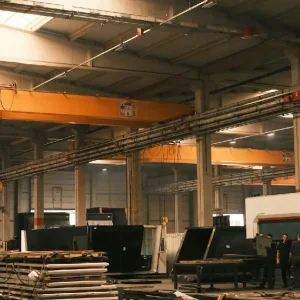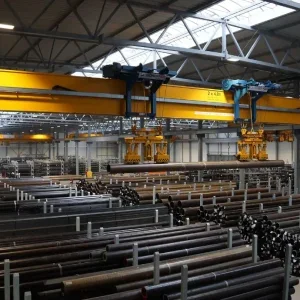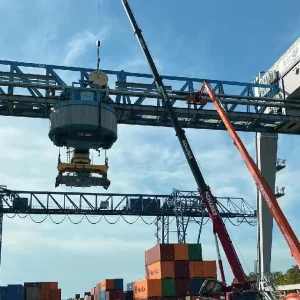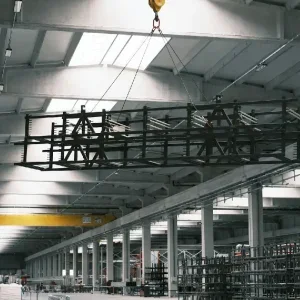
As businesses across the UK navigate the challenges posed by the 2024 Autumn Budget, which includes significant tax hikes and increased costs, the importance of continuing to invest in training cannot be overstated. While the rising cost burden is being felt by many companies, particularly in light of increased National Insurance Contributions and a higher minimum wage, cutting back on training would be a mistake, warns Ross Moloney, CEO of the Lifting Equipment Engineers Association (LEEA).
With the UK Government’s decision to raise taxes by £40bn, including a sharp increase in National Insurance from 13.8% to 15% from April 2025, businesses, especially small and medium-sized enterprises, will be looking for ways to offset rising costs. Many LEEA members are already expressing concern about the impact on their financials, with some estimating annual payouts of up to £30,000 more in taxes. In times of financial pressure, it’s all too easy to cut corners, and for many businesses, training is the first area to face cuts. However, this could be a grave misstep, particularly in an industry as safety-critical as lifting.
The lifting sector is a cornerstone of the UK economy, and yet it continues to grapple with skill shortages, which remain a major barrier to growth. Training is essential, not just to improve productivity and efficiency, but to ensure the safety of workers and the public. In fact, over 90% of all accidents in the lifting industry are due to human error, with carelessness, ignorance, and incompetence being the primary causes. This makes training not just a valuable investment but a vital one. The question businesses should ask themselves is: Can you afford *not* to invest in training?
LEEA is committed to providing members with flexible training options to meet these challenges. The Association’s training offering is continuously evolving to ensure it meets the diverse needs of the industry. Whether delivered digitally or in-person, LEEA’s courses cater to a global membership, with many available in multiple languages, including Bahasa, Simplified Chinese, Arabic, Brazilian Portuguese, French, and Spanish. New courses like ‘End User Guidance’ and ‘Introduction to Lifting Equipment’ are designed to support Continuing Professional Development (CPD) and build a strong safety culture within the industry.
In addition, LEEA’s upcoming Academy 3 curriculum is designed to underpin the Association’s vision of a lifting industry with zero accidents, injuries, and fatalities, and will include a Foundation Certificate as part of its safety initiatives. LEEA is focused on providing accessible, tailored learning to its members, and encourages businesses to explore the benefits of its training offerings.
While the Autumn Budget does include some positive measures for education, such as £950m for skills capital and £300m for the further education sector, and plans to introduce a Lifelong Learning Entitlement in 2027, the true impact of these changes remains to be seen. In particular, the reform of the Apprenticeship Levy into a more flexible Growth & Skills Levy offers businesses greater flexibility to use funds for a broader range of accredited training, something LEEA fully supports.
One of the cornerstones of LEEA’s training strategy is its commitment to apprenticeships, particularly the Lifting Equipment Technician apprenticeship. This qualification provides a valuable entry point into the industry and leads to further CPD opportunities, such as advanced training through LEEA. Although the apprenticeship is currently specific to England, LEEA is working to extend similar opportunities to Scotland, ensuring that a pipeline of qualified professionals continues to emerge across the UK.
The message to LEEA members is clear: training is a safe investment. It enhances productivity, helps to mitigate the increasing costs and shortage of labour, and – most importantly – it creates expertise. This expertise adds value not only to the businesses that invest in it, but also to their customers, contributing to safer and more efficient operations across the industry. In a sector where safety is paramount, and where improving standards is a constant battle, training is the tool that can help us achieve zero accidents, injuries, and fatalities. For those concerned about rising costs, training should remain a priority, not a casualty.
In conclusion, LEEA encourages all its members to take a proactive approach to training. In an environment where the economic outlook is uncertain, investing in the skills of your workforce is one of the safest and most effective ways to secure long-term success, improve safety, and strengthen your business’s position in the marketplace. For more details on LEEA’s training programmes, visit leeaint.com






